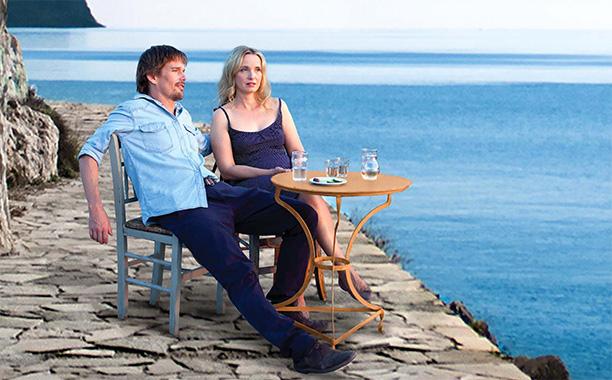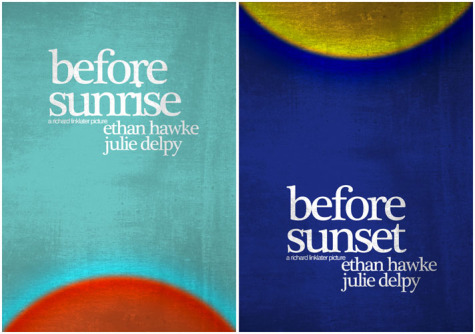An appreciative review of the “Before” trilogy
Richard Linklater’s “Before” Trilogy is the greatest trilogy of all time. No doubt about it.
Certainly, there are some other great trilogies out there, such as Star Wars or the Godfather, but both Ewoks and Sophia Coppola saw those franchises jump the shark. The only other trilogies which come remotely close are The Lord of the Rings and…eh, that’s about it.
The plot of the first film in the “Before” series, titled Before Sunrise, is simple. Two twenty-somethings, Jesse and Celine, meet and spend a single night together in Vienna before parting ways. No damsels in distress to be saved, nor any villains to defeat. The entire film is dialogue between these two flawed (and, at times, pretentious) characters. The attention to detail in their dialect, vocabulary, and awkward pauses makes them sound authentic and, ultimately, human. Watching the film, I believe that Ethan Hawke and Julie Delpy are their characters and that they are truly having those casual conversations about love, death, sex and so on. Never has a film done this as well as Sunrise does.
This premise returns in its sequel, Before Sunset. Sunrise is excellent because it follows the “if it ain’t broken why fix it” notion and develops the series a bit more. It’s nine years later and the lovers reunite for an afternoon in Paris. By this point, past relationships and new responsibilities have pushed them into maturity as adults. This affects their dialogue immensely, which becomes more sophisticated and far less cheesy. Linklater’s screenplay is once again stellar, receiving a Best Adapted Screenplay nomination at the 2004 Academy Awards. It’s in many ways different from Sunrise, with better-scripted characters and even some arguing that intensifies their relationship. Yet, it’s the weakest of the three because it’s the shortest and has an ambiguous ending that angered more than it intrigued me, though I do think that ambiguity is great when done well. But, thank goodness for Before Midnight, the sequel to the sequel.
Released in 2013, eighteen years after the first installment, Before Midnight gives me faith that sequels can hold their own against originals—and sometimes even surpass them. Midnight is the best of this trilogy, with even more believable performances from Hawke and Delpy and a superior screenplay that contains adult themes, such as abandonment, infidelity, betrayal, and nostalgia. Instead of following the same route as Sunrise and Sunset, Midnight illustrates relationships more realistically, the positive and not so positive aspects.
Now in their forties and with children, both Jesse and Celine have their regrets and conflicts that affect their marriage. They aren’t the same couple that met in that train in Vienna, and it seems that other couples, in real life as well, do not remain the same throughout their marriages. I have asked a few married couples whether or not the movie’s depiction of a strained marriage is accurate. Not only did they say it was a “perfect” portrayal, but they clarified that the characters’ relationship wasn’t actually strained at all and instead was merely maturing throughout the trilogy. Hawke’s character conveys the trilogy’s idea of the complications of human love better than I can: “If you want love, then this is it. This is real life. It’s not perfect but it’s real.”
The ending of Midnight is open to interpretation, much like the conclusion of Sunset was. Only this time, ambiguity is properly done, capturing the essence of the film and a bit of its preceding films in a few short lines. To me, the feeling the film leaves behind is somewhat bittersweet, and for that—and because the trilogy seems to need no overall improvements—I applaud the director of these masterpieces.

This is Thomas' second year in the Talon as an Entertainment Writer. His hobbies, aside from writing mediocre poetry and stellar shopping lists, include,...










